- Home
- Sean Platt
Deviant (Karma Police Book 4) Page 5
Deviant (Karma Police Book 4) Read online
Page 5
It hadn’t been easy for Rich. At first he needed to pretend that this was somehow necessary and part of the job. As tough as Rich was, murdering an innocent person was a step too far. And afterward, he needed time to process what happened before he could see his family.
He called his wife, told her that he had to work late, went to a bar at the edge of town and got plastered, then drove home, not even caring if he plowed into a tree.
He found himself standing over his six-year-old daughter, Emily, asleep in her princess bed, in her princess pajamas, in her princess room, living in this safe little bubble where most people were good, and evil was easy to avoid. A world where Daddy went to work at the CIA as one of the knights protecting the little princes and princesses of the kingdom from the dragons outside the castle.
But what if the monsters weren’t outside? What if they were the very people “protecting” the kingdom? Rich wondered when the lines between good and bad, black and white, had grown so muddied.
And then he broke down crying.
Rich crawled into bed and lay beside his daughter, hugging her, wishing he could turn back the clock to when he was that good guy — before being compromised by a job that wasn’t anything like he believed it to be.
Before he was part of a program hunting Deviants for “the greater good.”
The hunt was designed to do two things: keep the world safe from the bad Deviants and provide a place for the good Deviants to live out their lives. The Agency even worked with a school to train the best Deviant kids they could find.
But under the surface, Rich knew that something was rotten. He figured as long as he didn’t personally witness any of the worst things, he’d be fine with it. You don’t ask the butcher how the meat gets made if you’re grateful for dinner.
But now Fairchild has gone too far.
He’s killed an FBI agent, Rich’s partner, a young woman who’d done all the right things until I entered her body. Yeah, he considered her a pain in the ass, but what young person wasn’t a pain in the ass to old bastards like Rich? He still liked her, and, if he were honest, he envied her wide-eyed innocence and idealism.
She didn’t deserve what happened to her. Nor did she deserve to have her body burned to a crisp. She’ll be a missing person case for a few days. Fairchild already ordered someone to work up a false narrative, how she’d been dating some sketchy men, and that one of them was getting too possessive.
The Agency will frame a man named Robert Harris for the crime — a bartender getting too close to some politicians for the CIA’s comfort. Framing him for Brooke’s murder, then having him “kill himself” once police close in on his location, will eliminate two pesky problems at once.
It won’t matter that her body will never be found.
Or that Robert Harris’s alleged motives will be tenable at best.
All that matters is The Agency narrative. That’s the story that will be recorded as history, aired on late night news channels for years to come, with Brooke Sumner merely another victim of a lie. A bright light extinguished too soon.
The whole thing is rotten.
So Rich got plastered because if he didn’t, he just might do something stupid — like grow a conscience and call a reporter. Or worse. But he couldn’t afford to grow a conscience. Not with a family to protect.
If Rich did manage to find a reporter brave enough to run with the story (about as likely as a snowstorm in Haiti), it would paint a target on him and his family that they could never get out from under.
Even if they managed to find somewhere to hide, find a new job, and live under the radar, Rich would always be looking over his shoulder. Waiting for the day he’d walk into his house to find his wife and daughter dead, the gunman standing over their bodies, ready to tie up a final loose end.
Then it would be Rich painted with a false narrative — yet another man in America who killed his family before turning the gun on himself.
Emily’s voice pulls me back to the present.
“Are you going to wake up, Daddy? It’s almost time for our picnic.”
My eyes adjust to an adorable little face with blonde pigtails, blinking as she smiles up at me. As much as I enjoy waking up alone in a body without any family to feign familiarity with, there’s something about opening my eyes as the parent of a small child that always tugs at my heart. That look in their eyes, that unwavering, uncomplicated affection. There’s nothing like it in the world.
It makes me wonder if I have kids out there in my Real Life that I know nothing about. And if so, do they think I abandoned them? Or that I’m dead? Is their father still in the picture? If not, who is raising them?
As lost as I’ve felt this year, I can’t imagine the loss a small child must feel not knowing where their mother is. Or feeling that she’s left them.
Tears are starting to swell. I’m not sure if I’m an emotional mess, or if it’s the residue of Rich’s feelings from last night. Probably both, not that it matters any more.
“Are you crying, Daddy?”
I wipe my tears. “No, honey. I’m just really tired.”
I remember what Emily said about it being lunch time. I panic, realizing that I’m going to be late to work. How the hell can I let Richard go in, the day after Fairchild found me hiding in one of his agents? Surely, he’ll be looking for my return. And if he finds me in Rich, I’ll probably get another agent killed, thus leaving this poor little girl without her father. Given how Brooke’s body was disposed of, I’d be abandoning my wife and daughter to lives of heartache and mystery surrounding my death.
But I can’t just stay home. That will be even more suspicious.
They’d probably send agents to the house.
Groggy, I say, “I can’t go to the picnic. I’ve gotta get to work.”
“But it’s Saturday. You said we could have a family picnic at the park!”
My eyes adjust to the light enough that I can now see the disappointment in Emily’s big blue eyes.
She’s right. It is Saturday, and Rich doesn’t usually work on the weekends.
I sigh in relief.
Maybe I can get through the day without hurling another person into danger.
“You’re right, honey.” I kiss her on the cheek and stand. “Let me shower and get dressed. Then we’ll do our picnic.”
“Yay!” Emily exclaims, then scampers away.
I make my way to the master bedroom where Richard’s wife Lindsay is changing into jeans and a plum colored tee.
She’s in her early forties, same as Rich, with short blonde hair, pleasant laugh lines around her wise eyes, and something else — a pain I can see immediately. An ache she hides behind her public smile, but never with Rich. She doesn’t need to, seeing how blind he usually is.
She looks at me. “Out working late, eh?”
No point in lying to her. Lindsay saw me passed out on Emily’s bed, still in my now wrinkled work clothes. Hell, I reek of booze, half the reason I want to take a shower and freshen up.
“It wasn’t a good day.” This seems like the type of thing Rich would say. I can tell he isn’t usually overly communicative with his wife, particularly about work stuff.
“What happened?” she asks, clearly concerned.
“I can’t talk about it.” I peck her on the cheek, then head to the shower.
I can feel her pain as I walk away, but I can’t be extra affectionate if that isn’t something that Rich would ordinarily be. That would only make things worse tomorrow or the next day once I left his body and returned Rich to his distant self.
Lindsay might be wondering why he was so sweet and loving one day, then back to normal the next. And knowing the little I do, I imagine that she’ll think it was something she did.
I need to maintain the status quo no matter how painful or wrong it might feel.
I’d love to tell Lindsay exactly what happened, but I’m sure that would violate my rule. Besides, my confession would surely put her in danger. As fa
r as she knows, Rich works for the CIA. He’s one of the Good Guys. She doesn’t know that he’s part of a black ops group that experiments on people. I’m pretty sure that until last night, even Rich was in the dark about just how black his job could be.
Sure, protecting everyday people means working in the grayer areas of the law, where the real battles are fought. And yes, you must sometimes ignore civil rights for people who are obviously a threat. Rich could live with those things. The Bad Guys don’t follow a code of ethics, so why cuff yourself with archaic rules and gift your enemy with the upper hand?
But killing Brooke?
And knowing that the only thing The Agency was protecting now was themselves?
No.
Rich got blasted to forget his complicity, to blur his reflection, to deny that he was the sort of man he thought he was fighting.
It wasn’t the first time he’d gotten drunk or driven in that condition. It also wasn't the first time that the line between good and bad had blurred. But Brooke's murder was the biggest transgression. It was the thing you can never come back from. Proof of the thing he’d long suspected — that he wasn’t working for the Good Guys.
Hell, maybe there are no Good Guys.
I shower, feeling terrible for Rich, and guilty for judging him so harshly when his hands were throttling Janet.
Inside him, I can see through his life’s lens. He’s not some bully on a power trip. If anything, he hates bullies and wants to squash them. He views people like Darius and the other Deviants out there as threats in a looming invisible war between humanity and what might one day replace it.
More of his memories flood my mind as hot water beats on my body. As if it could wash yesterday away, or bring Brooke back or fix my screw-ups. But it does help me think and dive deeper into Rich’s memories.
Navigating memories is like fishing, except that you can’t ever be sure of which bait will attract which fish.
I start by thinking of something that should trigger an associated memory. But most people have associations I can’t predict. For instance, if I try to think of what a host’s favorite breakfast might be, I might imagine pancakes to see if that conjures any related thoughts.
But then I’m jumping from memories of pancakes to syrup to a time my host had a lot of syrup on their pancakes as a child. That triggers some childhood memories and traumas, which branches off to even more unrelated recall, and then I’m several layers removed from the original trigger with no way to harness a single thought.
It’s not like a DVD player I can slow down or navigate to the desired chapter. It’s more like the Internet on speed, with a broken keyboard and mouse.
As I try steering Rich’s memories toward the Karma Police and Jumpers, I wind up seeing cases of him tracking down other Deviants, people with horrible powers doing terrible things. Freaks as he sees them.
But I’m not getting anything useful. If he’s familiar with Karma, I’m not seeing anything.
Has he cordoned off parts of his memories, like Brooke did? He’s not a Deviant, so I’m not sure how he’d be able to unless it’s something the average person could be trained to do. Or maybe they’ve given Rich some sort of pharmaceutical cocktail to assist his psychic defense.
I try my name, Ella, to see what that might bring up.
Nothing.
How can that be?
Judging from his wide-eyed expression yesterday, Rich recognized my name when Fairchild told him I was inside Brooke. He might not have known me, but he knew of me. So why can’t I find any associated memories?
I’m jarred out of my zone by Lindsay’s voice. “You going to be in there all day? Your daughter is waiting.”
Your daughter.
An interesting choice of words, triggering associated guilt trips that Lindsay is always laying at his feet because they spend so little time as a family.
Lindsay hasn’t worked since Emily’s birth and was a restaurant hostess before that. When she went home for the day, she left her work behind. She can’t possibly understand a job where you never really quit working. Where you’re always thinking about the horrors you’re forced to face. Where you’re always worried how something might pan out.
He has not helped matters by never sharing. So instead, resentment has built through the years.
I would love nothing more than to break down the wall between them, to tell Lindsay everything and heal their divide.
It’s a blessing and a curse to observe people’s lives so objectively. I can usually see the precise things people should say and do to resolve their relationship issues. Ninety-nine percent of the time it comes down to communication. But people get so hung up on ego and not wanting to open themselves to hurt that they build their walls higher and higher until a meeting in the middle is nearly impossible.
It would be so easy to help Rich by talking to Lindsay. By telling her what he really feels, and explain that it does bother him that he works so hard and that he feels trapped in a job that might be endangering them all.
But Rich doesn’t know how to escape, especially not while keeping anything resembling a normal life. He’s seen too much. A normal life is no longer in the cards. Lindsay and Emily would almost be better off if he was—
Then I see it, plain as day, a reason for the self-destructive drinking and driving. Why Rich is so cold to his wife.
A part of him wants to find a way out of their lives, if only to protect them.
A dead CIA agent is better than a live one, at least for a family. A dead man was a hero, not subject to a living man’s flaws and weaknesses. A dead man also kept his mouth shut, which kept his family safe.
I feel sick to my stomach at this realization, and my inability to do anything about it. Even if I could figure some way out for them, even if I found some explanation which wasn’t quite the truth, but was good enough to make Lindsay feel acknowledged, it wouldn’t even matter once Rich was back in his body.
I’m not sure which is worse. Being Rich, unable to see what he needs to do. Or being me, seeing what should be done, but being unable to do anything.
I hate feeling so hopeless.
I finish showering, get dressed, then meet Lindsay and Emily downstairs.
“Ready?” I ask.
“Yes!” Emily leaps up and grabs a big picnic basket that’s too large for her little arms. I try to relieve her of it, but she wants to carry it.
I smile at her, then we head out the front door and pile into the minivan.
Emily is singing along with the car stereo while Lindsay thumbs messages to her sister on the phone. I’m still not sure why I’m in Rich’s body, but for now, I’ll enjoy the moment with his family — one of the hundreds of similar moments with other people’s families I’ve been a part of this year.
I can’t remember each moment as they glom together. My brain seems to forget most details of my hosts’ lives, but a few stick out, usually ones with precocious kids. And a few that were struggling with heartbreaking problems: cancer, the death of a parent, or extreme poverty.
I didn’t have answers for those people, either. I could only try to be there for them, even if I was only pretending to be the person they believed that I was.
We arrive at the park shortly after one. Emily helps her mom spread out the food and drinks on a red and white checkered blanket. They’ve made sandwiches and fruit salads. Emily boasts that she made the chocolate chip cookies all by herself, though I’m sure that means scooping batter from the Tollhouse wrapper. But she’s proud, and the cookies are good.
After lunch, we put the food away and lay on the blanket, staring up at low-hanging clouds, bright white and fluffy against the blue sky above.
Emily points to a cloud that she swears looks like a two-headed donkey.
“A two-headed donkey?” I laugh.
“Yeah, like the one in that cartoon.”
I’m not sure if she means a cartoon with a two-head donkey or a normal one, but I agree. “Okay, I guess.”
“Now you find one.”
I’m scouring the sky but not seeing any that haven’t already been claimed. “I got nothing.”
“Oh, come on, Daddy. I see at least twelve more.”
“Twelve?” Lindsay asks, either impressed or not believing her daughter.
“At least.”
Lindsay and I trade bemused glances.
Lindsay says, “Okay, show us.”
Emily points out animals, people she knows, and inanimate objects. Most are a stretch, but who are we to rain on a kid’s imagination?
We’re laughing and having a great time. For a moment, I feel like maybe Rich will be alright after all. He has a loving wife and a terrific kid. Maybe he wasn’t giving Lindsay enough credit by shielding her from the parts of his job that he felt were too dangerous. Sure, there’s a high level of secrecy when you work in the CIA, but there were ways to share things, hinting at the truth, while still working through some of the job’s many issues.
Maybe they can mend their—
My phone rings.
The tone tells me it’s Director Fairchild.
I go to grab it from my pocket. Lindsay shoots me a look: Really?
At least Emily isn’t guilt-tripping me yet. She’s still naming clouds, now well past twelve.
“Hello?”
“Wellner, we need you to come in.”
Of fucking course you do.
“Why, what’s up?” I ask, treading carefully so as not to arouse suspicion.
“We’ll tell you when you arrive, but it’s all hands on deck. How soon can you get here?”
“I’m with my family on a picnic right now.”
“But you’re in town?”
I consider lying, but I’m certain that Wellner’s phone is tracked by The Agency.
“Yes.”
“Get here ASAP,” he says, then hangs up.
I look at Lindsay and Emily, both of them staring back with an identically sad expression.
They know what’s coming.
Lindsay stands and starts folding the blanket.

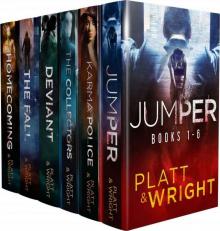 Jumper: Books 1-6: Complete Saga
Jumper: Books 1-6: Complete Saga WhiteSpace Season One (Episodes 1-6)
WhiteSpace Season One (Episodes 1-6)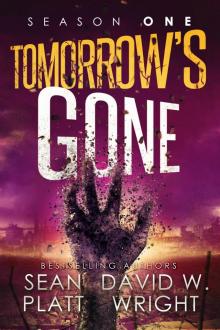 Tomorrow's Gone Season 1
Tomorrow's Gone Season 1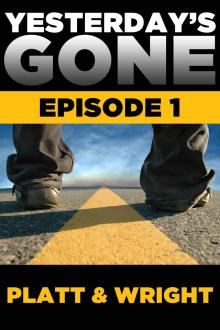 Yesterday's Gone: Episode 1
Yesterday's Gone: Episode 1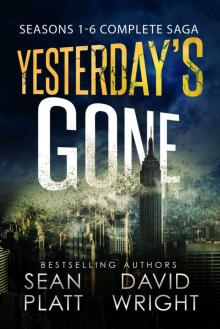 Yesterday's Gone: Seasons 1-6 Complete Saga
Yesterday's Gone: Seasons 1-6 Complete Saga The Beam- The Complete Series
The Beam- The Complete Series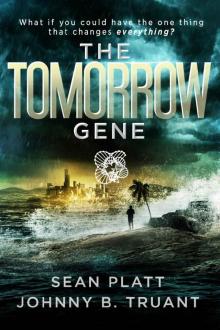 The Tomorrow Gene
The Tomorrow Gene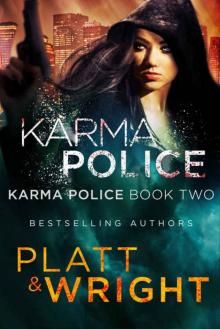 Karma Police: Karma Police Book Two
Karma Police: Karma Police Book Two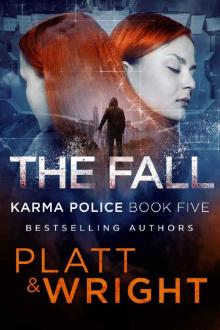 The Fall (Karma Police Book 5)
The Fall (Karma Police Book 5)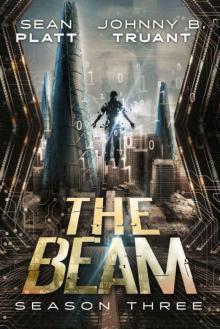 The Beam: Season Three
The Beam: Season Three Resurrection
Resurrection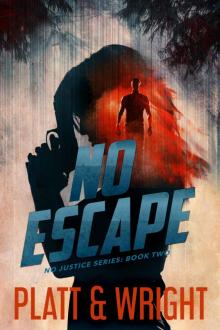 No Escape (No Justice Book 2)
No Escape (No Justice Book 2)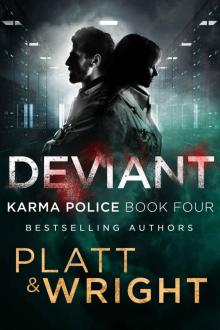 Deviant (Karma Police Book 4)
Deviant (Karma Police Book 4)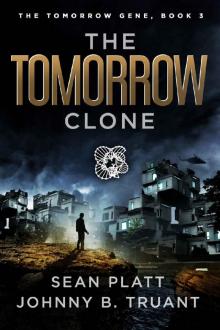 The Tomorrow Clone (The Tomorrow Gene Book 3)
The Tomorrow Clone (The Tomorrow Gene Book 3)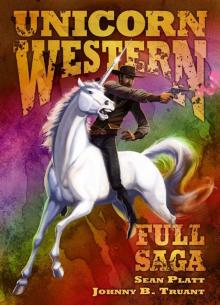 Unicorn Western
Unicorn Western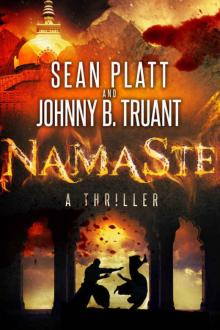 Namaste
Namaste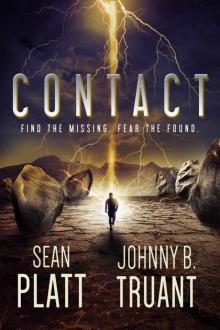 Alien Invasion (Book 2): Contact
Alien Invasion (Book 2): Contact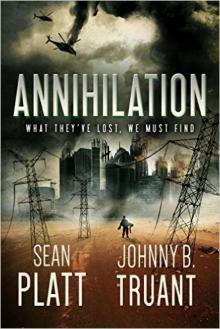 Alien Invasion (Book 4): Annihilation
Alien Invasion (Book 4): Annihilation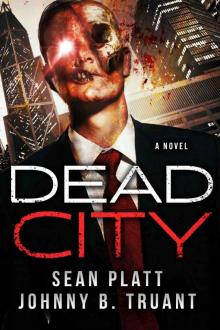 Dead City
Dead City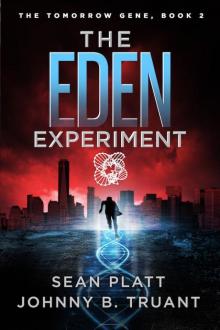 The Eden Experiment
The Eden Experiment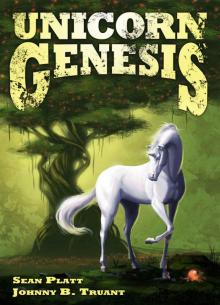 Unicorn Genesis (Unicorn Western)
Unicorn Genesis (Unicorn Western)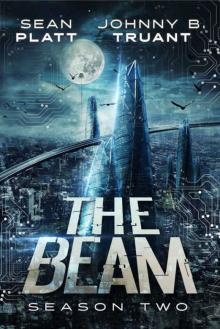 The Beam: Season Two
The Beam: Season Two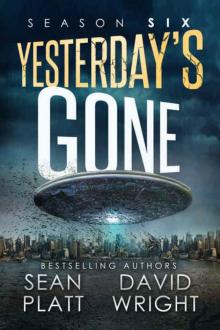 Yesterday's Gone: Season Six
Yesterday's Gone: Season Six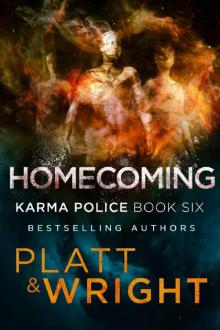 Homecoming (Karma Police Book 6)
Homecoming (Karma Police Book 6)![[Alien Invasion 01.0] Invasion Read online](http://i1.bookreadfree.com/i1/03/30/alien_invasion_01_0_invasion_preview.jpg) [Alien Invasion 01.0] Invasion
[Alien Invasion 01.0] Invasion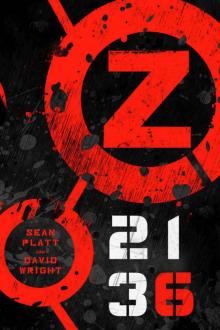 Z 2136 (Z 2134 Series Book 3)
Z 2136 (Z 2134 Series Book 3)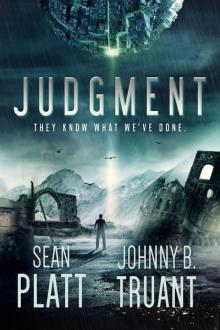 Alien Invasion (Book 5): Judgment
Alien Invasion (Book 5): Judgment Threshold
Threshold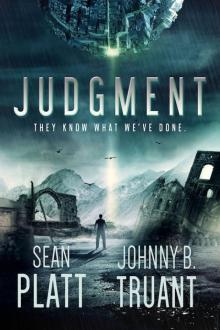 Judgment
Judgment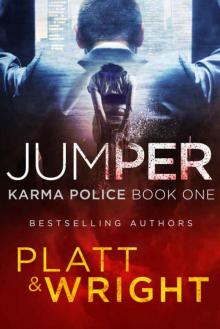 Jumper: Karma Police Book One
Jumper: Karma Police Book One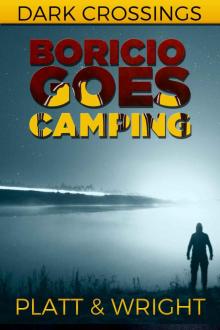 Boricio Goes Camping (Dark Crossings)
Boricio Goes Camping (Dark Crossings)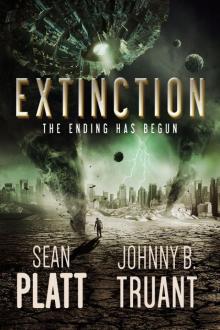 Extinction
Extinction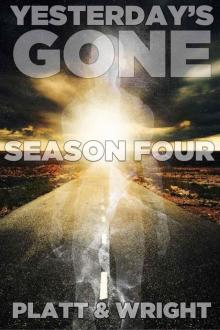 Yesterday's Gone (Season Four): Episodes 19-24
Yesterday's Gone (Season Four): Episodes 19-24![[No Justice 01.0] No Justice Read online](http://i1.bookreadfree.com/i2/04/09/no_justice_01_0_no_justice_preview.jpg) [No Justice 01.0] No Justice
[No Justice 01.0] No Justice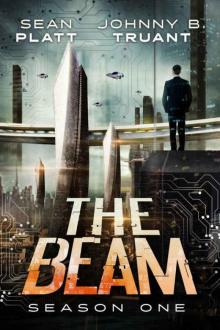 The Beam: Season One
The Beam: Season One La Fleur de Blanc
La Fleur de Blanc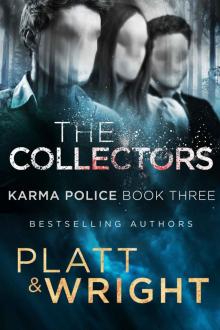 The Collectors (Karma Police Book 3)
The Collectors (Karma Police Book 3)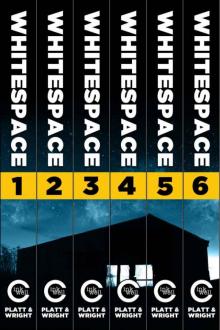 WhiteSpace: Season One (Episodes 1-6 of the sci-fi horror serial)
WhiteSpace: Season One (Episodes 1-6 of the sci-fi horror serial)